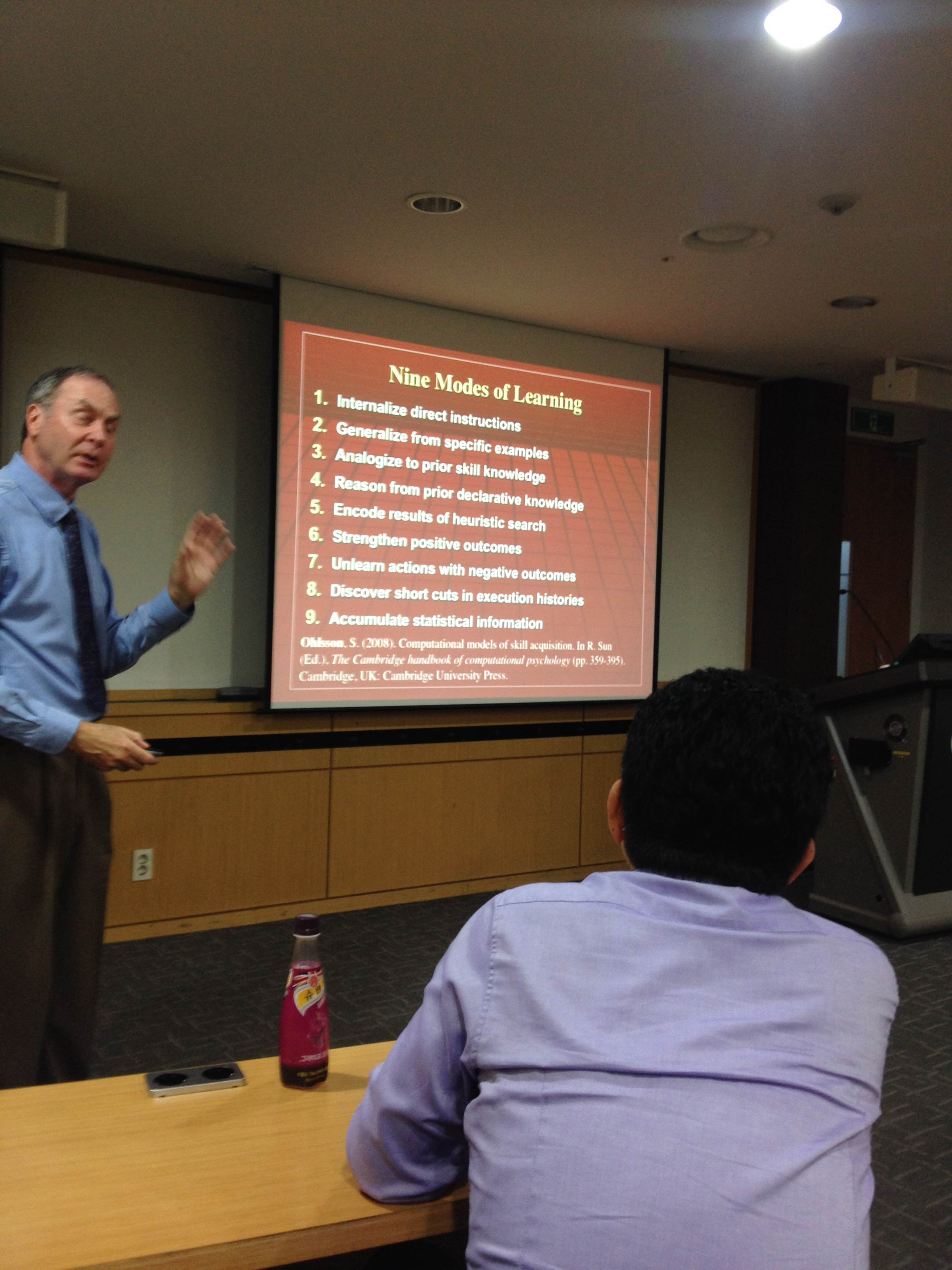Stellan Ohlsson, Professor in Psychology at University of Illinois at Chicago visited COGENG (Cognitive Engineering Lab) at SKKU and gave a speech on skill acquisition. He introduced his own work of learning from errors in which he argues that, in order to acquire or specializes in a certain skill (e.g., changing a lane to the left while driving), people should not only perform a certain task (e.g., turning the steering wheel to the left) but also detect and correct errors (e.g., turning the steering wheel to the left only when a car behind approaches). According to his constraint based approach, a skill is acquired only when a certain action with a negative outcome is unlearned (e.g., turning the steering wheel to the left slowly so that being hit by the car behind).
Certainly, there are many more ways to acquire skills. According to his review paper published in 2008, there are at least nine different ways of how people acquire skills.
1. Internalize direct instructions
2. Generalize from specific examples
3. Analogize to prior skill knowledge
4. Reason from prior declarative knowledge
5. Encode results of heuristic search
6. Strengthen positive outcomes
7. Unlearn actions with negative outcomes
8. Discover short cuts in execution histories
9. Accumulate statistical information

